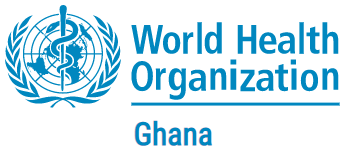The World Health Organization (WHO) and the Korea International Cooperation Agency (KOICA) Ghana have signed an agreement to pilot a new project that will strengthen ongoing efforts to protect against the dangers of Antimicrobial Resistance (AMR) in Ghana.
The new project titled - Partnership for Health Security in Ghana under the “Increasing Health Security Capacities through the Global Health Security Agenda (GHSA) Phase 2” by the Government of Korea is worth 100 000 US Dollars and will be implemented in the Northern region of Ghana.
The project seeks to optimize the use of antimicrobial medicines by providing practical guidance, capacity building and support to selected healthcare facilities in the northern region to implement antimicrobial stewardship (AMS) interventions in hospitals and laboratories. It will also see the development of AMS guidelines and training manual for Ghana
Speaking at the agreement signing ceremony, WHO Representative to Ghana, Prof Francis Kasolo underscored the global health and development threats of AMR and expressed gratitude to the Government of Korea for joining hands with WHO to support Ghana’s efforts towards addressing them.
“Antimicrobial resistance has emerged as a serious threat not only to humans but also to animals,” noted Prof Kasolo. “This partnership will generate important information necessary to develop drugs and inform communities about the threats of AMR and ultimately contribute to saving lives and livelihoods.”
On his part, the Ghana Country Director of KOICA, Donghyun Lee, expressed the pleasure of KOICA to partner with WHO at the national and subnational level on addressing the key public health priority of the Government of Ghana. “This initiative will strengthen healthcare systems and empower the local communities,” he stated. “This project is for the people of Ghana and allows dialogue between partners and stakeholders to achieve the solution we jointly imagine.”
AMR occurs when bacteria, viruses, fungi and parasites change over time and no longer respond to medicines making infections harder to treat and increasing the risk of disease spread, severe illness and death. As a result of drug resistance, antibiotics and other antimicrobial medicines become ineffective and infections become increasingly difficult or impossible to treat.
WHO has declared that AMR is one of the top 10 global public health threats facing humanity. This new project is expected to complement ongoing efforts aimed at addressing AMR and its associated dangers in Ghana.
The pilot initiative will be managed by WHO and implemented over 17 months from 02 November 2023 to 31 March 2025 by Ghana Health Service and Tamale Teaching Hospital in collaboration with the Ministry of Health, the United States Centers for Disease Control and other stakeholders.
Distributed by APO Group on behalf of World Health Organization (WHO), Ghana.
Latest Stories
-
Armah-Kofi Buah is the light of Western Region – NDC Regional Secretary praises Ellembelle lawmaker
36 mins -
‘Go back to Supreme Court’ – Dafeamekpor tells Afenyo-Markin over Speaker’s refusal to recall Parliament
54 mins -
EC’s Restriction on Media Accreditation: A threat to Ghana’s democracy and press freedom
1 hour -
Bawumia will sign peace pact on Thursday – Campaign
1 hour -
Ghanaian dancehall sensation CantCool makes waves in OKC
1 hour -
Ghanaians must learn to embrace new characters – Safo Newman
1 hour -
AGA MD crowned Mining Personality of the Year at 10th Mining Industry Awards
2 hours -
Increase in cocoa price has reduced cocoa smuggling – Kuapa Kokoo MD
2 hours -
Rev. Mary Ghansah’s ‘More Than A Song’ event slated for December 1
2 hours -
EC’s collation centre media limit could undermine transparency – Dr Kojo Asante
2 hours -
COP29: Young people prevail on G20 countries to deliver climate finance
2 hours -
EC urges political parties to avoid wasting resources on monitoring electoral material transport
2 hours -
Unlock Tomorrow’s Innovations, Utilise Technology: Our chance at progress: Join us at the IN’TECH Forum!
2 hours -
New era in public transport sector as Bawumia launches affordable electric buses
2 hours -
WHO Africa incoming director dies aged 55
2 hours

